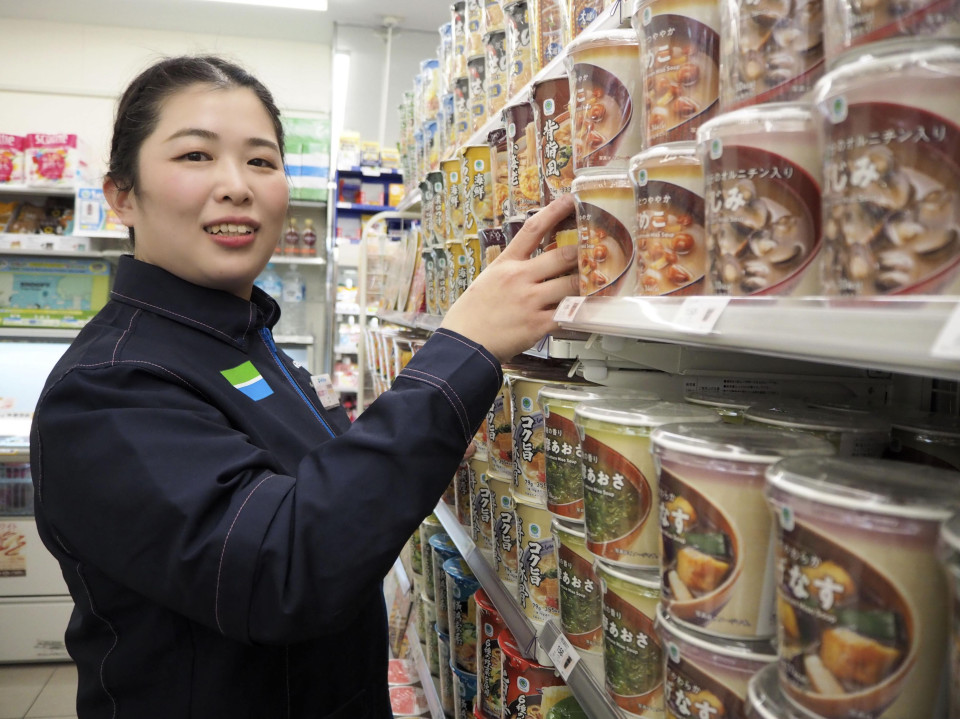Over 80,000 foreign nationals work part-time in Japan's three major convenience store chains, data collected by Kyodo News showed Wednesday, in a trend likely to continue amid labor shortages from an aging population.
Foreign workers now represent around 10 percent of the part-time labor force across branches of Seven-Eleven Japan Co., Lawson Inc. and FamilyMart Co. convenience stores, according to the data.
Wednesday marked 50 years since the opening of Japan's first-ever convenience store -- a 7-Eleven outlet in Tokyo's Toyosu area -- on May 15, 1974.
Now seen as an indispensable part of Japanese life, convenience stores largely operate 24 hours a day, selling various food and household products and offering services such as package delivery, bill payment and event ticket purchases.
A Kyodo News survey of the major convenience store operators in April found that 7-Eleven stores had the most foreign part-time shop staff at around 40,000, while Lawson stores had some 24,000 and FamilyMart around 18,000.
According to totals from the Japan Franchise Association, which includes convenience store chain Ministop Co. along with the big three, the number of foreign nationals working at the shops has risen by 1.4 times compared to five years prior.
Data provided by the three major chains shows that while people of many nationalities make up the roughly 80,000 figure, a significant portion consists of Asian individuals from countries such as China, Vietnam, and Nepal.
One of them is 37-year-old Chinese national Lyu Ling, who has worked for multiple convenience stores over the past 10 years.

"At the start, I didn't understand Japanese, so the store manager would help me, and I gradually learned how to speak," she said from her current workplace at a FamilyMart outlet in Tokyo's Ginza high-end shopping district, popular with tourists.
Owing to the large number of hotels in the area, the store sees numerous Chinese customers in the mornings and evenings. "It pleases the customers too if we can interact with them in Chinese," she said.
Some 80 percent of the shop's staff are foreign, an indication of the difficulties some stores have finding Japanese workers.
A manager at one outlet said that "without foreign employees, we don't have enough people to cover the shifts."
Many who apply are international students aiming to improve their Japanese ability through the work, according to data from the three major chains. With the yen's weakness encouraging more overseas visitors to come to Japan, the companies hope that hiring foreign staff will improve communication with the rising influx of inbound customers.
But while the sector marks its 50-year milestone, the number of convenience stores nationwide remains largely unchanged from its fiscal 2018 total of around 58,000 outlets. Each firm is now looking for ways to respond to a changing Japanese society.
"We're no longer in an age where we compete on numbers of stores, but how to improve value at each outlet," said one person connected to the industry.
Related coverage:
Around 68,000 elderly die alone in Japan annually: police
Japan job availability down to 1.29 in FY 2023, 1st fall in 3 yrs
More foreign students set to be eligible for Japan government scholarships











